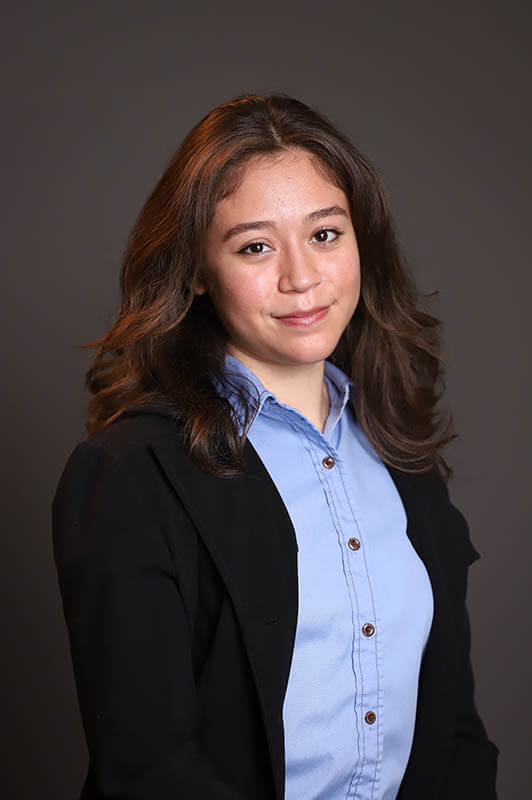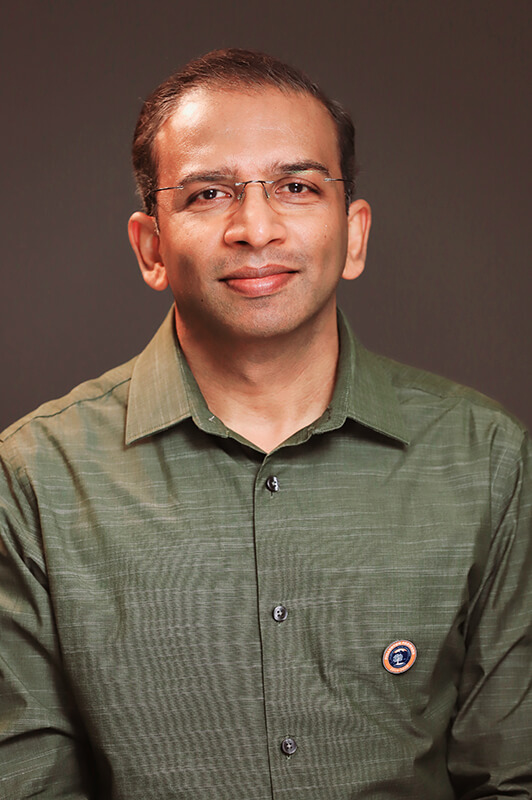
Graduating computer engineering major Kristine Vergara is exploring using technology to study how stress affects older adults, especially when faced with mentally challenging tasks.
Vergara’s research analyzes stress wave patterns in aging seniors to understand how different factors, such as the environment, health conditions and social interactions, affect their well-being.
She is applying machine learning algorithms, measuring brain activity and using a programming platform for her aging science study.

“The goal is to use this data to develop technology-driven solutions to improve stress management and mental health support for the aging population,” said Vergara, who is graduating in May and is the first in her family to earn a college degree.
“By studying stress responses in aging adults, we can design interventions like wearable devices or assistive technology that improve stress management and overall well-being.”
Kiran George, Vergara’s research adviser, stated that by 2050, individuals aged 65 and older are projected to make up nearly 15% of the global population.
“Aging brings everyday stressors that often go unnoticed. Over time, this kind of chronic stress can take a toll on both physical and mental well-being,” said George, associate dean for graduate programs, faculty research and innovation in the College of Engineering and Computer Science and professor of electrical and computer engineering.
To further her research to develop hardware for biomedical applications, Vergara will attend Columbia University in the fall to pursue a master’s degree in computer engineering.
Vergara’s research is made possible through the interdisciplinary MSTEM Scholars Trained in Aging Research Program, directed by Jennifer Piazza, professor of public health, and Laura Zettel-Watson, professor of psychology.
The program, supported by National Institutes of Health funding, brings together aging researchers across four colleges and prepares students for graduate studies and careers in aging science fields. Careers in aging science include becoming an epidemiologist, biomedical engineer, physical therapist and geriatrician.
“My goal is to become an engineer who designs innovative hardware solutions that merge functionality with accessibility,” Vergara said. “I want my work to be technically sophisticated and user-friendly, ensuring that technology serves all demographics.”

To prepare for grad school, Vergara is a Louis Stokes Alliance for Minority Participation research scholar and was selected for USC’s 2024 Viterbi Summer Undergraduate Research Experience. She also received a Beverly and Arnold Miller University Scholarship in Gerontology and ECS Dean’s Diversity, Equity and Inclusion Scholarship.
Vergara also credits George and the MSTEM STAR program for helping her understand how engineering can be applied to health care solutions.
“His mentorship has been invaluable in helping me navigate academia, prepare for graduate school and refine my research interests,” said Vergara, who has presented her research at regional and national conferences.
George shared that Vergara’s research is promising to better understand how the brain responds to stress. Her study shows that when older adults engage in cognitive exercises like memory games, it can reduce stress and boost mental wellness.
“Kristine’s work could help shape better tools and programs to support healthy aging in our growing senior population,” George added.
As people age, they experience physiological and psychological changes that impact their ability to manage stress. Chronic stress in older adults is linked to health issues like heart disease, cognitive decline and reduced quality of life.
“The idea that I can help design something that improves the well-being of an entire demographic excites me the most,” Vergara said.